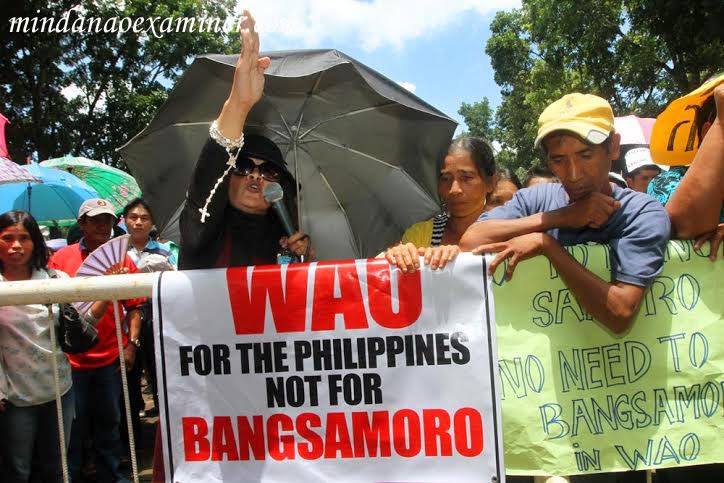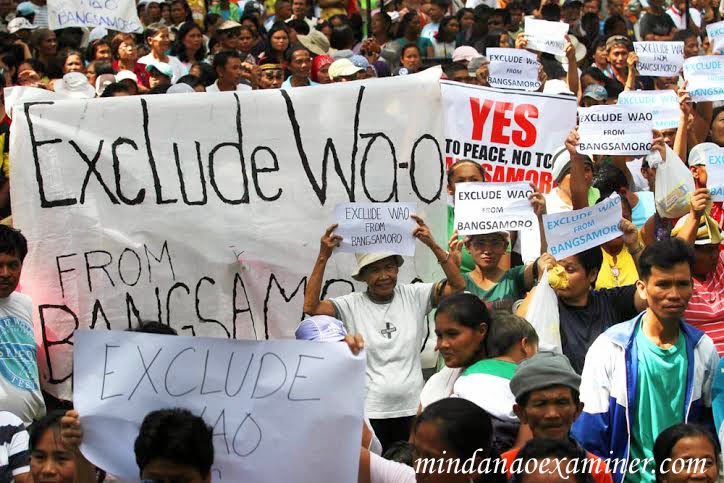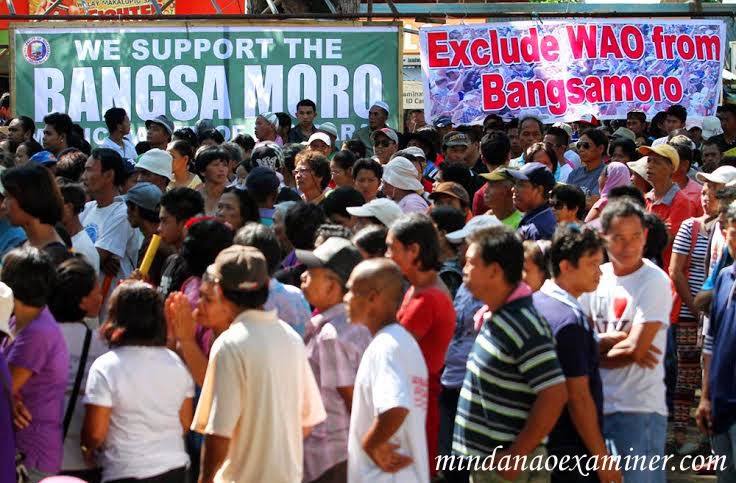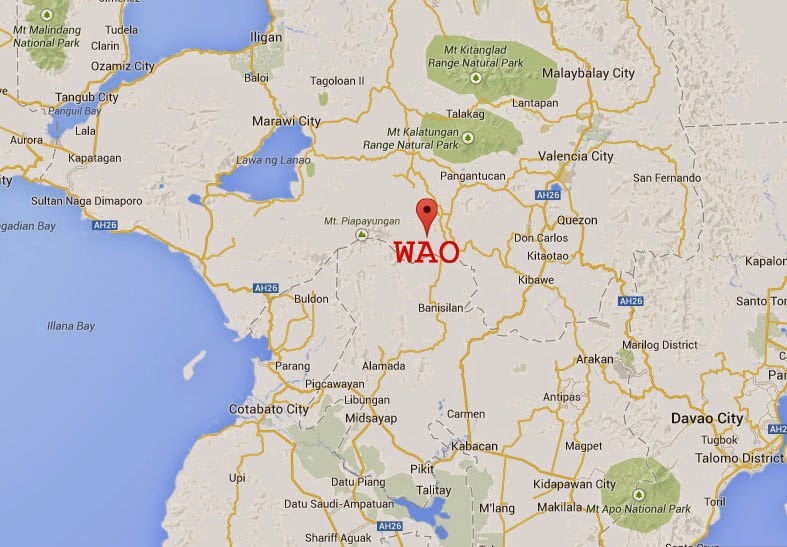
LANAO DEL SUR (Mindanao Examiner / May 18, 2014) – Christian villagers in the southern town of Wao have vowed to reject a Muslim homeland deal between the Philippine government and the Muslim rebel group Moro Islamic Liberation Front, saying they do not want to be included in the new Bangsamoro territory.
Villagers said shortly after the deal was signed in March 27, Muslim groups have emerged and started claiming farmlands owned by Christians as theirs and invoking their ancestral rights in Lanao del Sur.
Now, many residents have started arming themselves for fear that once the new Bangsamoro autonomous government is installed, Muslims will take away their lands which they inherited from their clan. Majority of the town’s 40,000 inhabitants is Christians, although Lanao del Sur is one of five provinces under the restive Autonomous Region in Muslim Mindanao or ARMM.
Some villagers said several groups of Maranao, one of several Muslim tribes in Mindanao, have started putting up markers and began claiming farmlands as their ancestral domain. The markers had been destroyed by landowners.
In Sultan Kudarat province, villagers in the town of President Quirino were also facing the same dilemma, but many also have purchased illegal weapons to protect their families and lands from unjustified takeover by Muslims who warned them that they should leave the town immediately once the Bangsamoro autonomous region is installed because they would take over their farms.
Leaders of the Christian cities of Zamboanga and Isabela in Basilan, also a province under the ARMM, also vowed to fight for their inclusion in the new Bangsamoro homeland, although many of the residents there are Muslims and supportive of the peace deal.
But the creation of Bangsamoro autonomous region would have to be decided on a referendum in the ARMM and in areas where there are large Muslim communities. The new Bangsamoro region will replace the current Muslim autonomous region that has suffered from decades of poverty, corruption, and conflict.
President Benigno Aquino has already received the Bangsamoro Basic Law or BBL drafted by the 15-member Bangsamoro Transition Commission. Once Aquino signs the law, it can be ratified and implemented in time for the 2016 local and national elections. The BBL will pave the way for the establishment of the Bangsamoro region in 2016.
Presidential peace adviser Teresita Deles has previously said that the BBL is likely to be certified as an urgent bill by Aquino and would be submitted to Congress for passage, and subjected to a plebiscite.
But some lawmakers and various groups were saying that the accord was unconstitutional and also vowed to challenge it to court.
The Aquino government insisted the Comprehensive Agreement on the Bangsamoro or CAB is legal and that the deal was based on the Constitution. “The CAB is legal,” said lawyer Anna Basman, head of the CAB legal team.
She said they are open to engaging and informing everyone on the different provisions on the CAB.
“Our Constitution itself provides the justification for the asymmetry and reserved a separate set of provisions for two particular areas in the country – Muslim Mindanao and the Cordilleras. This progressive and enlightened section recognizes the uniqueness of the peoples belonging to these areas and provides for their rightful exercise of self-governance. The Bangsamoro Basic Law as the enabling law for the establishment of the Bangsamoro precisely aims to operationalize this constitutional objective,” Basman said.
Ghazali Jaafar, MILF Vice Chairman for Political Affairs, doused fears by many groups about the BBL and said it is not an Islamic law.
“The Bangsamoro Basic Law that is proposed is not an Islamic Law. These are rules on how to govern the Bangsamoro government. It’s not a law that will alienate the rights of the Filipino people but a law only to provide and facilitate the meaningful and fair implementation of the GPH and MILF Comprehensive Agreement on the Bangsamoro,” Jaafar said during a multi-stakeholders forum on the CAB at the Ateneo de Davao University.
The mineral-rich region of Mindanao, once under the powerful rule of the sultans, is now home to minority Muslims – about 4 million from the region’s 18 million mostly Christian inhabitants.
The Philippine Statistics Authority describes Mindanao as an underdeveloped region with problems on peace and order to racism. “From Spanish era up to the present, it remains underdeveloped compared to Luzon. Problem on peace and order due to political conflict and racism issue had been seen as the main factors of the sluggish development of the island in view of the fact that beliefs and cultural diversities between native inhabitants and migrants are existing within it,” it said.
The MILF – a breakaway faction of the Moro National Liberation Front which signed a peace deal with Manila in September 1996 – is the country’s largest Muslim rebel group fighting for decades now for self-determination. (Mark Navales)



